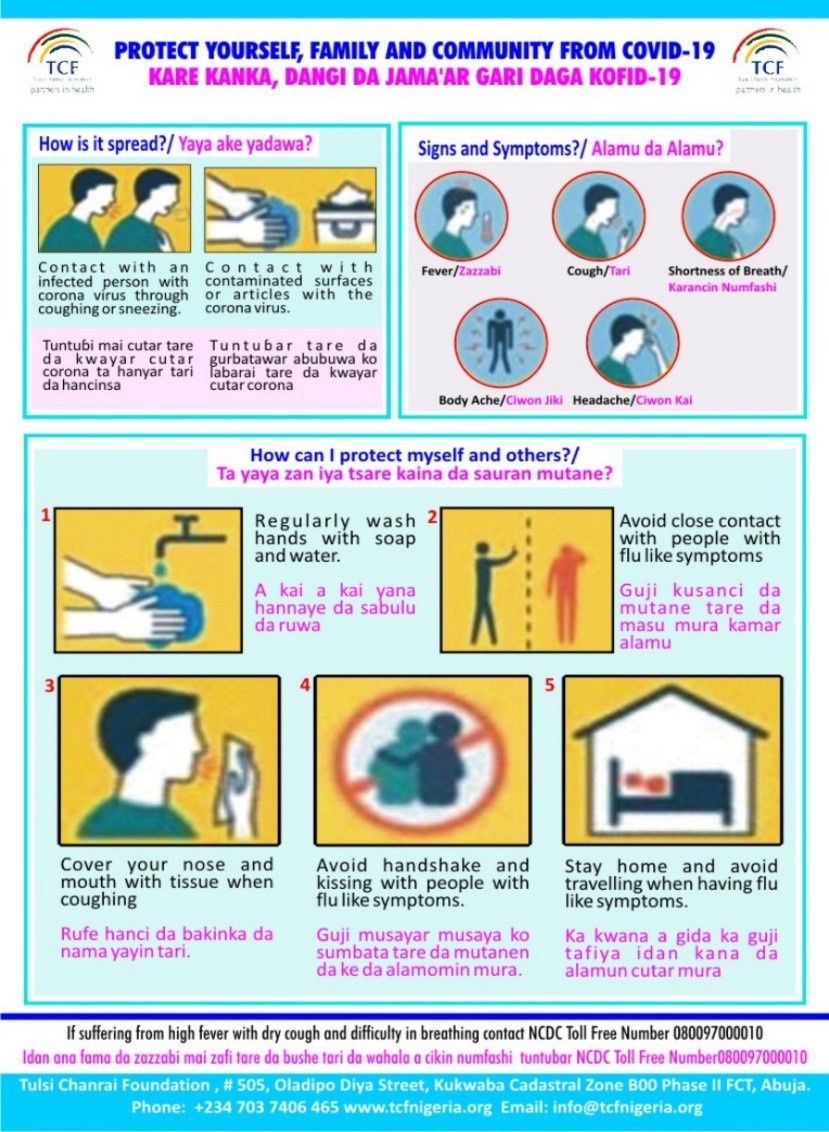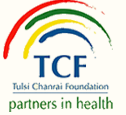About Coronavirus
Coronaviruses are a family of viruses that can cause illnesses such as the common cold, severe acute respiratory syndrome (SARS) and Middle East respiratory syndrome (MERS). In 2019, a new coronavirus was identified as the cause of a disease outbreak that originated in China.
The virus is now known as the severe acute respiratory syndrome coronavirus 2 (SARS-CoV-2). The disease it causes is called coronavirus disease 2019 (COVID-19). In March 2020, the World Health Organization (WHO) declared the COVID-19 outbreak a pandemic.
Public health groups, including the U.S. Centres for Disease Control and Prevention (CDC) and WHO, are monitoring the pandemic and posting updates on their websites. These groups have also issued recommendations for preventing and treating the illness.
Causes
Infection with the new coronavirus (severe acute respiratory syndrome coronavirus 2, or SARS-CoV-2) causes coronavirus disease 2019 (COVID-19).
The virus appears to spread easily among people, and more continues to be discovered over time about how it spreads. Data has shown that it spreads from person to person among those in close contact (within about 6 feet, or 2 meters). The virus spreads by respiratory droplets released when someone with the virus coughs, sneezes or talks. These droplets can be inhaled or land in the mouth or nose of a person nearby. These droplets can also land on surfaces. A healthy person can then unknowingly touch those surfaces and the next thing you know is that the virus has moved to the persons respiratory system as he may touch his face with the infected hand. It can also spread if a person touches a surface with the virus on it and then touches his or her mouth, nose, or eyes.
Often, people’s hands can transport the viral particles to different surfaces, even the face, where it can enter your body through your eyes, mouth, or nose. (Hence why health officials are advising not to touch our faces and to wash our hands.) The disease is still in an investigative phase and new knowledge is constantly emerging about Covid19.
Risk factors
Risk factors for COVID-19 appear to include:
- Recent travel from or residence in an area with ongoing community spread of COVID-19 as determined by NCDC or WHO
- Close contact (within 6 feet, or 2 meters) with someone who has COVID-19 or being coughed or sneezed on by an infected person
Complications
Although most people with COVID-19 have mild to moderate symptoms, the disease can cause severe medical complications and lead to death in some people. Older adults or people with existing chronic medical conditions are at greater risk of becoming seriously ill with COVID-19.
Complications can include:
- Pneumonia and trouble breathing
- Organ failure in several organs
- Heart problems
- Blood clots
- Acute kidney injury
- Additional viral and bacterial infections
When to see a doctor
If you have COVID-19 symptoms or you have been in contact with someone diagnosed with COVID-19, contact your doctor /NCDC for medical advice. Tell the health care team about your symptoms and possible exposure.
If you have emergency COVID-19 signs and symptoms, seek care immediately. Emergency signs and symptoms can include:
- Trouble breathing
- Persistent chest pain or pressure
- Blue lips or face
If you have signs or symptoms of COVID-19, contact your doctor /NCDC for guidance. Let your doctor know if you have other chronic medical conditions, such as diabetes, heart disease or lung disease. During the pandemic, it is important to make sure health care is available for those in greatest need.
Prevention
Although there is no vaccine available to prevent COVID-19 as of now, you can take steps to reduce your risk of infection. WHO, CDC and NCDC recommend following these precautions for avoiding COVID-19:
- Avoid large events and mass gatherings.
- Avoid close contact (within about 6 feet, or 2 meters) with anyone who is sick or has symptoms.
- Stay home as much as possible and keep distance between yourself and others (within about 6 feet, or 2 meters) if COVID-19 is spreading in your community, especially if you have a higher risk of serious illness.
- Keep in mind some people may have COVID-19 and spread it to others, even if they do not have symptoms or do not know they have COVID-19.
- Wash your hands often with soap and water for at least 20 seconds or use an alcohol-based hand sanitizer that contains at least 70% alcohol.
- Cover your face with a cloth covering or face mask in public spaces, such as the grocery store, where it is difficult to avoid close contact with others, especially if you are in an area with ongoing community spread. Only use non-medical cloth masks — surgical masks and N95 masks should be reserved for health care providers.
- Cover your mouth and nose with your elbow or a tissue when you cough or sneeze. Throw away the used tissue.
- Avoid touching your eyes, nose, and mouth as far as possible.Avoid sharing dishes, glasses, bedding, and other household items if you are sick.
- Clean and disinfect high-touch surfaces, such as doorknobs, light switches, electronics, and counters, daily.
- Stay home from work, school, and public areas if you are sick, unless you are going to get medical care. Avoid public transportation, taxis, and ride-sharing if you are sick.
- If you have a chronic medical condition and may have a higher risk of serious illness, check with your doctor about other ways to protect yourself.

covid-19, tcfnigeria
Travel
If you are planning to travel, first check the NCDC and WHO websites for updates and advice. Also look for any health advisories that may be in place where you plan to travel. You may also want to talk with your doctor if you have health conditions that make you more susceptible to respiratory infections and complications.
Practice everyday prevention
As you touch people, surfaces, and objects throughout the day, you accumulate germs on your hands. You can infect yourself with these germs by touching your eyes, nose, or mouth.
Hence, to protect yourself, wash your hands often with soap and water for at least 20 seconds. If soap and water are not available, use an alcohol-based hand sanitizer with at least 70% alcohol.
Current Scenario of COVID 19 in Nigeria:
TCF in support of National COVID 19 response in Nigeria:
TCF has always been partnering with state & federal governments and civil society to plan and implement community health programs. During this difficult phase of the Covid-19 pandemic, in support to the national COVID 19 response, TCF has implemented a two-fold strategy. First, to continue implementation of our key programs under Mission for Primary Health, Mission for Water and Mission for Vision as they are part of the solution to address the COVID 19 pandemic.
Second, the TCF team under the leadership of its Chairman Mr. Jagdish M. Chanrai developed a support package aimed at ensuring an efficient, effective, and impactful response, specially to support those at the bottom of the pyramid who are most adversely affected, due to the lockdown announced in Abuja, Yola and Zaria. TCF joined hands with the Presidential Task Force on COVID-19 in partnership with the FCT Administration and rolled out the palliative support in Abuja, FCT.
Similarly, in association with Kewalram Chanrai Group rolled out palliative support to the most at-risk population/families such as pregnant women, malnourished children, economically weaker sections of the society and others at the primary health care project sites in Yola and Zaria. More than 1200 families are provided with palliative support (includes Indomie/ Rice; Oil; Milk Powder and Soaps) to aid the families throughout the lockdown period.
In total, TCF has reached over 3000 families with Palliative care in Abuja, Yola, and Zaria.
